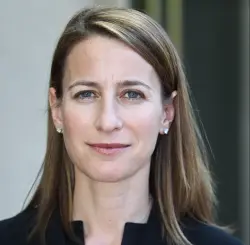According to data released in 2018, only 12 percent of children tested in 7 low- or middle-income countries met minimum proficiency for math, and 23 percent for reading. This compares to 77 percent and 80 percent, respectively, in wealthier OECD countries. To discuss how the global education system can bring about transformational change, Jenny Perlman Robinson, a senior fellow with the Center for Universal Education at Brookings, joins the show to talk about her research on scaling—or expanding and deepening the impact—of education programs around the world. She also shares her discussions with three education leaders she interviewed at a global meeting in Switzerland this summer. These experienced leaders possess deep insights on the role that public, private, and civil society actors can play in scaling and sustaining education programs, and they bring fresh perspectives on the topic from around the globe.
Also on this episode, Senior Fellow Molly Reynolds breaks down what’s happening in Congress as it returns to work after a summer recess.
Related Content:
Millions learning: Scaling up quality education in developing countries
To create systems change in education, shift away from a ‘project mentality’
Subscribe to Brookings podcasts here or iTunes, and send feedback email to [email protected].
The Brookings Cafeteria is part of the Brookings Podcast Network.
The Brookings Institution is committed to quality, independence, and impact.
We are supported by a diverse array of funders. In line with our values and policies, each Brookings publication represents the sole views of its author(s).






Commentary
PodcastAddressing the global learning crisis
September 13, 2019
Listen on
Brookings Cafeteria Podcast